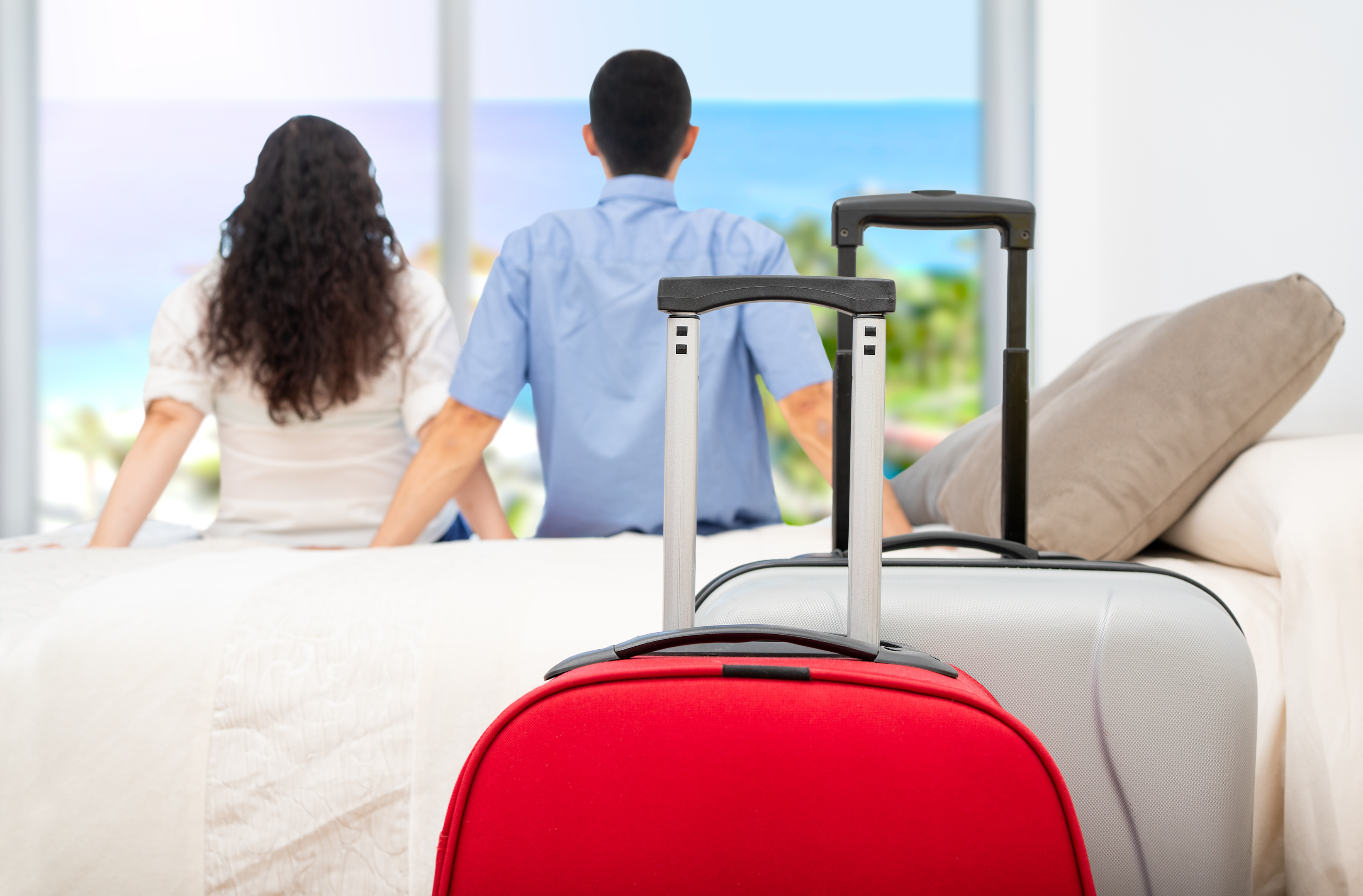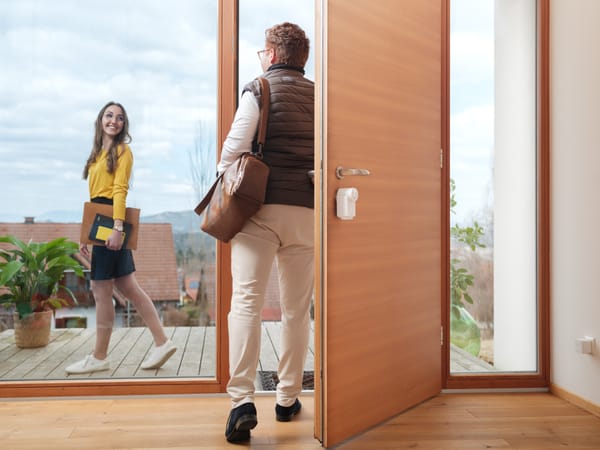What Does Double Occupancy Mean for Hotels and Vacation Rentals?

You may have heard the term double occupancy in the hotel or vacation rental industry. It's an important concept that affects the way the room or rental unit is priced and perceived by guests.
The concept of double occupancy helps travelers know what to expect when booking a stay and determines how to price the unit correctly.
In this guide, we’ll break down what double occupancy means, how it differs from single occupancy, and how it impacts pricing, guest limits, and booking policies for hotels and vacation rentals.
Let's take a closer look at double accommodations.
What is Double Occupancy?
A double occupancy room refers to a hotel room or rental that is designed and priced to accommodate two people. This type of room is standard in most hotel rooms, including double rooms and rooms with two double beds. It's often associated with a pricing structure that is based on double occupancy prices.
A double occupancy room, or a double room as it is often called, can have different configurations. The most common setup is a room with a double bed, suitable for a couple or close friends.
Other configurations include rooms with two double beds or even two single beds, accommodating friends or colleagues who prefer separate sleeping arrangements.
The same concept can also apply to vacation rentals.
Difference Between Single Occupancy and Double Occupancy
Single occupancy and double occupancy refer to the number of guests staying in a rented hotel room.
- Single Occupancy: This term means that only one person/a single guest, will be staying in the room. The rate is based on one individual's use of the room, and no additional guests are expected.
- Double Occupancy: In contrast, double occupancy means that two people will be sharing the room. The double occupancy rates are designed to cover the cost of two individuals using the facility. If more than two people end up staying, the hotel policy may require an additional fee.
The difference between single and double occupancy also influences the pricing. Double occupancy prices are generally higher than for single occupancy, reflecting the increased cost of utilities, cleaning, and potential wear and tear associated with accommodating more guests.
How Double Occupancy Affects Pricing
The rates for hotel rooms are often based on double occupancy, meaning that the listed double occupancy price is intended to cover the costs associated with two guests.
Double occupancy rates help standardize pricing across the hotel industry, facilitating price comparisons for potential customers. They also reflect the fact that a significant number of travelers come in pairs, whether as couples, friends, or business associates.
However, if more than two guests will be staying in the hotel room, there may be additional charges, commonly referred to as a "per person" or "additional guest" fee. This policy compensates the hotel for the increased costs associated with accommodating more guests, such as utilities, room maintenance costs, and wear and tear.
In vacation rentals like Airbnb, hosts will set a base rate that covers a certain number of guests, and then they can charge an additional guest fee for each person beyond that. This approach gives hosts flexibility to account for higher utility use, extra laundry, cleaning, or extra supplies.
How Double Occupancy Affects Accommodation
Double occupancy also influences the way a hotel room or vacation rental is prepared. A standard unit advertised for double occupancy typically includes at least one double bed or two single beds, along with amenities (such as towels, chairs, cups, etc.) to comfortably accommodate two people.
How Double Occupancy Affects Booking Policies
When booking a double occupancy room, the guest typically must specify whether it's a single occupancy room or a double.
If a guest books for one person but arrives with a second, they may be charged the double occupancy rate or even incur a penalty for not accurately reporting the number of guests.
Double occupancy policies can vary significantly by hotel and location. Some establishments have strict double occupancy rules and additional fees, while others may allow more flexibility, especially in the case of children or special events.
When booking an Airbnb or vacation rental, a host sets the maximum number of guests a property can accommodate. The nightly rate is usually set for one or two guests in shared rooms, and typically for two guests in entire apartments. Hosts can charge an additional fee for any extra guests beyond that.

How Rental Properties Implement Double Occupancy
Double occupancy is actually very common for short-term rentals, as it’s natural for two guests to share the same apartment. For hosts, this setup maximizes demand, since couples and pairs make up a large share of the travel market.
However, Airbnb properties will often accommodate a group of travelers, like a family or a group of friends. You’re not limited to just two guests. Pricing structures on Airbnb and similar platforms are set so that you can establish a base price for typically two people and charge an additional fee if you choose to accommodate more than two guests.
Here's how it works on Airbnb:
Set guest limit
How many guests can your property comfortably accommodate? How many beds and rooms do you have? First, you need to establish your maximum occupancy. Too many people in a space can lead to excessive wear and tear, as well as noise complaints from neighbors.
Set base price
The base price is usually set for two people if you have a room with a king-sized bed. Sometimes you may be renting out only a shared room for one. Your base price will be set for two guests (or sometimes one).
Set extra guest fees
If you set your base price for two but your maximum occupancy is four guests, you can charge an additional fee per guest, per night. (Also, make sure to include these fees in your listing description so guests know upfront.)
Airbnb hosts can charge an extra guest fee. It typically ranges from $10 to $25 per night for each additional guest beyond the standard occupancy. Of course, this rate varies depending on factors such as the extra work involved or offering a discount for longer stays.
Also, you might want to increase your cleaning fee with each additional guest.
What if a Guest Brings Extra People to My Airbnb?
If a guest shows up with a large group or more people than stated in the reservation, the host has the right to charge an additional nightly fee for the extra guests. In that case, you’ll need to send your guest a trip change to adjust the price.
However, if you’re unable to accommodate the larger group, you can ask them to cancel their reservation. Guests will then be refunded according to the cancellation policy in place.
FAQ
Does double occupancy mean two people?
Yes, the term "double occupancy" generally means two people sharing a hotel room or another type of accommodation. The rate for a room is often based on double occupancy, meaning it is intended to accommodate two guests. If more than two individuals stay in the room, there may be an additional fee.
Why do hotels charge for double occupancy?
Hotels charge for double occupancy as it involves accommodating two guests instead of one, resulting in higher costs. These costs can come from various aspects, such as increased water and energy usage, additional cleaning, and more significant wear and tear on the room and its furnishings.
Do hotels or Airbnb mind if 5 people stay in a 2-person room?
A standard double room is typically meant for two adults. Hotels that allow a third or fourth guest could charge an extra fee. It could go against their policy to exceed the maximum limit.
As for Airbnb rentals, if a host can accommodate five people, they will allow you to stay together, but an additional fee is often charged for more than two guests.
Takeaway
Pricing based on double occupancy also standardizes rates across the industry, making it easier for customers to compare prices. It accounts for the fact that many travelers tend to travel in pairs, such as couples or friends.
For vacation rental hosts, it is important to keep this in mind when defining the pricing structure for their listings and setting expectations.
To keep your vacation rental business fully automated, check out how iGMS can help. This property management app is designed for modern hosts to stay on top of all their booking channels and guest turnover tasks on the go.







